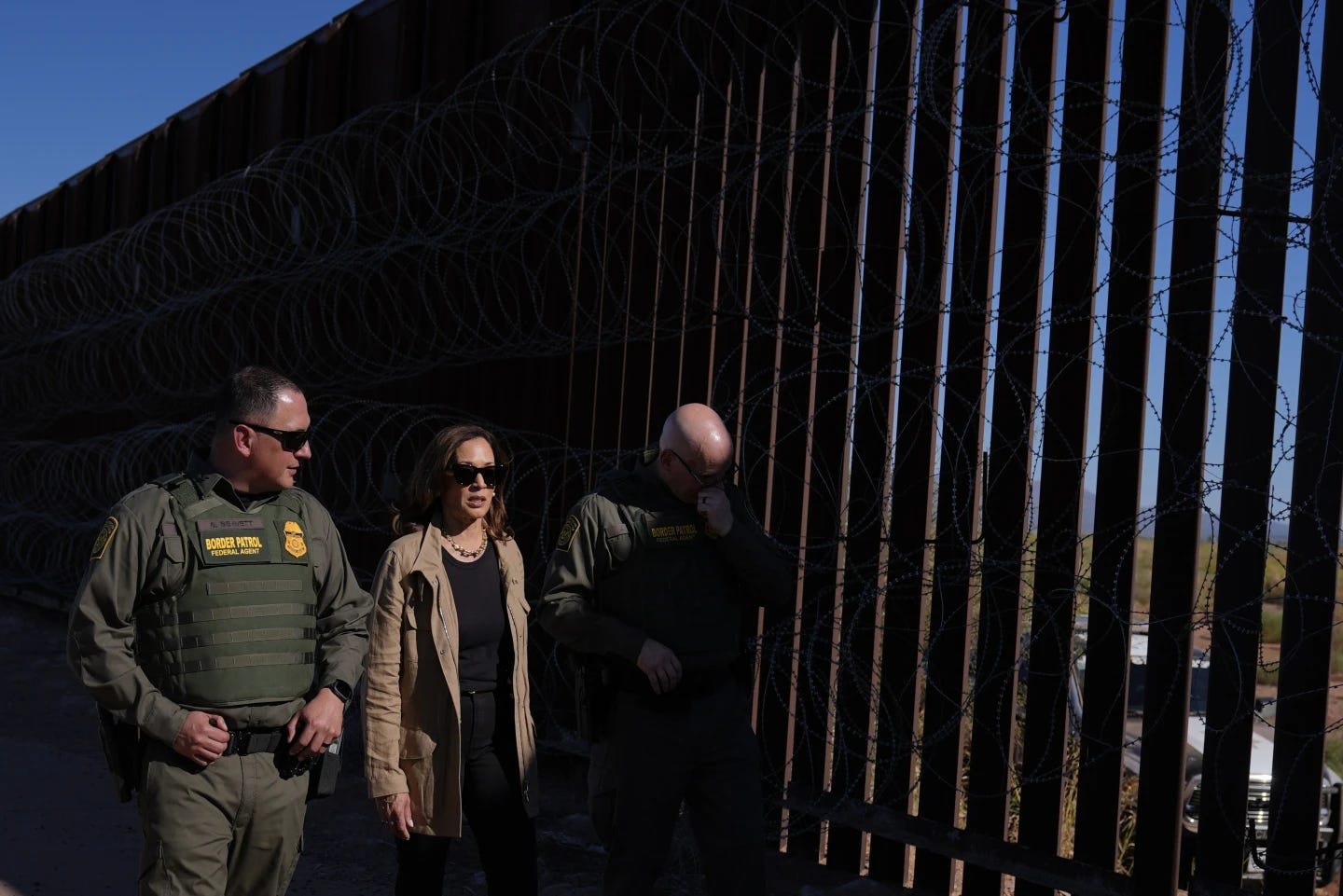Biden Administration Scrambles to Tighten Asylum Rules in Last-Minute Bid Ahead of Presidential Election
Too little, too late? "Who called it illegal immigration and not alien invasion?"

Biden Administration Toughens Asylum Rules Amid Electoral Pressure
The Biden Administration on Monday (September 30) announced even stricter asylum restrictions at the U.S. southern border, in an attempt to address growing public concern over immigration. These latest measures intensify the policies introduced in June 2024, which were already considered some of the toughest in recent memory. The move reflects the administration’s desire to signal to voters that it is taking a firm stance on border security ahead of the 5th November presidential election.
New Restrictions at the Border
Under the previous rules, the U.S. could limit access to asylum when migrant encounters at the southern border exceeded 2,500 per day. The threshold for lifting those restrictions was set at below 1,500 migrants per day, averaged over a week1. Now, the administration has doubled down, stipulating that the daily average must be below 1,500 for an entire month before the restrictions can be lifted. Moreover, all children, irrespective of nationality, will now be counted in these numbers. This further complicates the pathway to asylum for many families, with critics arguing that it will result in prolonged human suffering and uncertainty.
Justifications and Criticism
Administration officials have defended the tougher stance by arguing that a longer timeline is essential to ensure that reductions in migrant encounters are sustained. The Department of Homeland Security (DHS) has touted the drop in illegal crossings as a success, with numbers reportedly falling by over 50% since the June measures were enacted. Secretary of Homeland Security Alejandro Mayorkas emphasized that the asylum system is not being "cut off" entirely, pointing to exceptions such as victims of trafficking and those using the CBP One app to schedule asylum appointments. However, with only 1,450 appointments available daily through the app, demand far outstrips supply, leaving many would-be asylum seekers in limbo.
Immigration advocacy groups have strongly condemned the latest restrictions. They argue that these policies effectively amount to an "asylum ban," as the numbers of encounters have rarely dipped low enough for long enough to lift the restrictions. The American Immigration Lawyers Association has warned that the current measures could stay in place indefinitely, violating the U.S.’s humanitarian obligations and international refugee law. The United Nations refugee agency has expressed "profound concern," suggesting that these actions are undermining the principles the U.S. has historically championed.
Election Year Politics
The timing of these changes is no coincidence, with the upcoming presidential election looming large over the administration’s immigration policy. For President Biden and Democratic nominee Vice President Kamala Harris, immigration has become an Achilles' heel. The Republican nominee, Donald Trump, has made immigration one of his key issues, blaming the Biden administration for what he describes as an unmitigated crisis at the southern border.
Harris, who visited Arizona’s border with Mexico last week, sought to strike a balance between security and humanity. While walking along the imposing metal fence, she reiterated the need for both a secure border and a fair, humane immigration process. However, her visit has done little to quiet critics, both from the right, who argue the administration has not gone far enough to secure the border, and from the left, who contend the new rules are too draconian.
A Missed Opportunity for Democrats?
The decision to toughen asylum rules at this late stage raises questions about the Democratic Party’s electoral strategy. Many expected abortion rights to be a major issue in the upcoming election, especially in the wake of Supreme Court rulings and state-level battles. Instead, immigration has surged to the forefront of the political debate, with voters increasingly anxious about border security and the handling of migrant influxes.
The impact of these measures on Biden and Harris’s electoral prospects remains uncertain. While they may appease some voters concerned about border security, they risk alienating key Democratic constituencies that advocate for more humane immigration policies. For many observers, the administration's actions might feel like "too little, too late" as they scramble to address a pressing issue. As I facetiously tweeted, "Who called it illegal immigration and not alien invasion?" — a pun on the word "alien," reflecting the virtual river, if not ocean, of humanity traversing and meandering into the U.S. from Mexico. This dramatic shift in electoral focus signals that immigration, rather than abortion, could very well become the defining issue of the 2024 presidential election, with far-reaching consequences for both parties.
Biden's Executive Order on Illegal Immigration: Contents and its Implications
Executive Action Amidst Political Scrutiny




